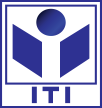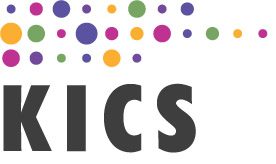Now 58 visitors
Today:89 Yesterday:603
Total: 44269
34S 26P 0R
2024-09-21, Week 38 |
| TACT Journal Homepage |
| Conference Call for Paper |
| Author HomePage |
| Paper Procedure |
| Paper Submission |
| Participant Registration |
| Welcome Message |
| Statistics & History |
| Committee |
| Paper Archives |
| Outstanding Papers |
| Author HomePage |
| - Paper Procedure |
| - Journal Procedure |
| - Presentation Tips |
|
| Conference Proceedings |
| Program with Papers |
| Plenary Session |
| Tutorial Session |
|
| Presentation Assistant |
| Travel Information |
| About Korea |
| Accommodation |
| Transportation |
| VISA |
| Other Infomation |
|
| Photo Gallery |
| FAQ |
| Member Login |
| Scheduler Login |
| Archives Login |
|
| Sponsors |

|

|

|

|

|

|

|

|

|
|
|
|
|
|
2014
 |
Title : Korean ICT R&D strategy - Keynote speech |
|
Time : 17:00~17:30 Feb. 17 (Monday) 2014 |
|
Speaker : Director Oh Sang-jin, Ministry of Science, ICT and Future Planning (MSIP), Korea
Oh Sang-jin works as the director of Information and Communications Technology Policy Division in MSIP. Recently His mission is mostly related to planning R&D strategy in ICT. He, as a public officer, has usually worked for ICT promotion role of Korean government since 1993. Before his joining in MSIP, he worked in President’s Office, Korea Communications Commission and Ministry of Information and Communications. He studied electrical engineering in Hanyang University in Seoul (89 ~ ’93) and received MBA from University of Oregon, USA (’03 ~’05).
Abstract : The environment of ICT industry and technology has changed rapidly. The changes are so dramatic that the R&D strategy plan should change continuously. Recently, in 2013, Korean government made a new long-term strategy plan for ICT R&D promotion. In this strategy, Korean government has proposed 10 main technologies and 15 future services to be mainly focused for ICT R&D promotion. The 10 technologies are including 5G, holography, smart network, intelligent S/W, cyber-security technology, etc. The government expects that the 10 technologies will do key role in developing ICT industries in Korea and worldwide.
|
 |
Title : Advances and Challenges in Communication Infrastructures for Smart Grid - Keynote Speech |
|
Time : 17:30~18:00 Feb. 17 (Monday) 2014 |
|
Speaker : Prof. Yi Qian, PhD. - University of Nebraska-Lincoln, USA
Yi Qian received a Ph.D. degree in electrical engineering from Clemson University. Currently he is an Associate Professor in the Department of Computer and Electronics Engineering, University of Nebraska-Lincoln (UNL). His research interests include information assurance and network security, network design, network modeling, simulation and performance analysis for next generation wireless networks, wireless ad-hoc and sensor networks, vehicular networks, broadband satellite networks, optical networks, high-speed networks and the Internet. Prior to joining UNL, he worked in the telecommunications industry, academia, and the U.S. government. Some of his previous professional positions include serving as a senior member of scientific staff and a technical advisor at Nortel Networks, a senior systems engineer and a technical advisor at several start-up companies, an Assistant Professor at University of Puerto Rico at Mayaguez, and a senior researcher at National Institute of Standards and Technology (NIST). He has a successful track record to lead research teams and to publish research results in leading scientific journals and conferences. Several of his recent journal articles on wireless network design and wireless network security are among the most accessed papers in the IEEE Digital Library. Dr. Yi Qian is a member of ACM and a senior member of IEEE. He is also the Chair of the IEEE Communications and Information Systems Security Technical Committee (CIS-TC).
Abstract : Smart grid is a term referring to the next generation power grid in which the electricity distribution and management is upgraded by incorporating advanced two-way digital technology and communication capabilities for improved control, efficiency, reliability and safety. Communication infrastructures are at the core of the smart grid as they will empower the legacy power grid with the capability of supporting two-way energy and information flow, isolating and restoring power outages more quickly, facilitating the integration of renewable energy sources into the grid and empowering the consumer with tools for optimizing their energy consumption. In this talk, we first present the background and motivation of communication infrastructures in smart grid systems. We then summarize major requirements that smart grid communications must meet, followed by the current technology advances. We further discuss the challenges for a communication infrastructure as the part of a complex smart grid system. Since a smart grid system might have over millions of consumers and devices, the demand of its scalability, reliability and security is extremely critical. Through a communication infrastructure, a smart grid can improve power reliability and quality to eliminate electricity blackout.
|
|
|
|
|
ⓒ Copyright 1999. ICACT (ISSN 1738-9445) & Global IT Research Institute(GiRI) All rights Reserved. Contact: office (at) icact . org Tel:+82-70-4146-4991
|
1713 Obelisk, 216 Seohyunno, Bundang-gu, Sungnam Kyunggi-do, Republic of Korea 13591
Business License Number : 220-82-07506, President: Thomas ByeongNam Yoon Ph.D. |
|
(13591)경기도 성남시 분당구 서현로 216 오벨리스크 1713호
(사)글로벌IT연구회 사업자등록번호 : 220-82-07506 대표자 : 윤병남
|
|
| |






